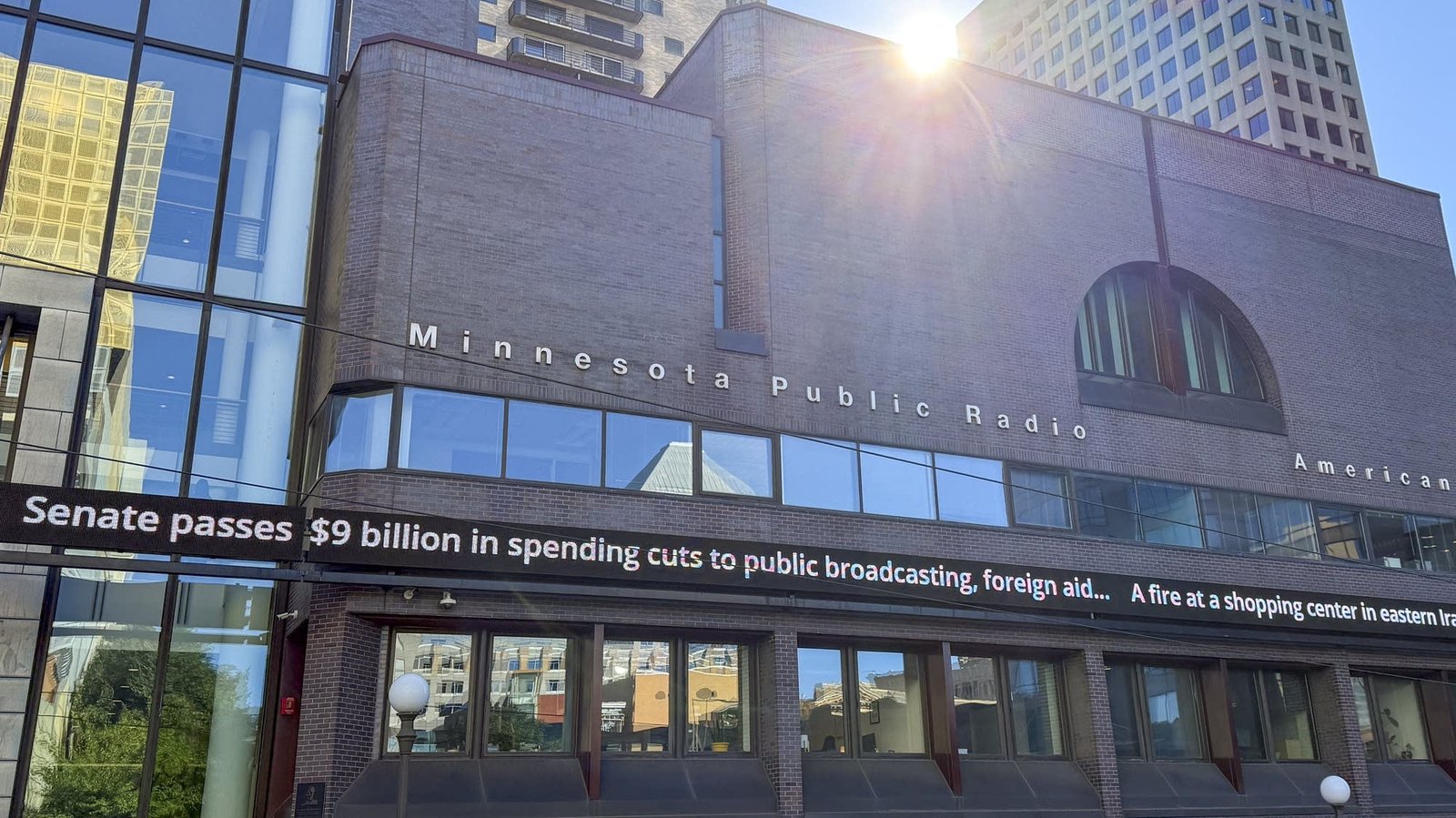Sixteen media organizations in Minnesota are set to lose more than $17 million in Corporation for Public Broadcasting funds following the passage of the rescission bill in Congress.
The U.S. House of Representatives approved the Trump administration's clawing back of $1.1 billion of previously allocated federal funding for CPB on Thursday.
This includes funding for MPR News, the Current, YourClassical, regional PBS stations, north Minneapolis’ KMOJ, Jazz 88, KFAI and small radio stations transmitting from across the state.
American Public Media President Chandra Kavati said between the federal and state cuts APMG, MPR’s parent company, is facing a $6 million deficit for this fiscal year.
“We are in the midst of a deep financial review right now, and what I will say is that everything is on the table,” said Kavati. “However, we will hold our audience service at core as well as fulfilling our public service mission. But that being said, there really are some tough choices ahead.”
Federal funding makes up about 6 percent of MPR’s budget.
For smaller stations in Minnesota, federal dollars make up a more significant share of their budgets. 12 broadcasters get more than 30 percent of their funding from the CPB.
Kavati says she’s worried stations that serve rural audiences will not survive these clawbacks.
“It is going to sound dramatic,” Kavati said. “But it is going to be terribly catastrophic for a number of communities that are going to lose their essential public service through their community media stations.”
Tribal public radio stations in Minnesota also rely on CPB funding.
KBFT is owned and operated by the Bois Forte Band of Chippewa. CPB funding makes up over half of their $330,000 annual budget.
George Strong, general manager of KBFT, said CPB funds allow the station to purchase programming and broadcast additional content from other sources including national Native Voice One.
“There are a lot of national issues that are happening, whether that might be weather related or news related or politically related,” said Strong. “So, it goes into pretty much every facet of daily life.”
He added that the station is located in what he calls a news desert.
Local papers have all but disappeared, and Strong hopes KBFT can get creative to provide much-needed local news coverage.
“Maybe move services around,” said Strong. “Maybe we would not be able to carry as much national programming, but we might be able to find some funds to do some more alternative type programming.”
Funding for public media has historically had bipartisan support. But more recently conservative Republicans say NPR and PBS shouldn’t receive any federal money because its news coverage has a liberal bias. The Trump administration’s Office of Management and Budget called the CBP spending wasteful.
Jeffrey Miron, vice president for research at the Cato Institute, told NPR he opposes government subsidies of public broadcasting altogether.
“Do I think that NPR tends to lean left? I do, and lots of my friends and family who are not Republican or not conservative tend to agree with that,” said Miron. “That, in and of itself, is not the issue. The issue is taxpayer funding. We just wanted to let the marketplace for ideas determine what gets out there, what is produced, and what people have access to listen to.”
Granite Falls-based Pioneer PBS serves more than one million people in southwestern and west central Minnesota, Iowa and in North and South Dakota. The station uses CPB funds to pay for programming and local content.
Shari Lamke, general manager of Pioneer PBS, said the cuts mean a loss of $1 million, or a third of the organization’s budget.
“There are a lot of people we serve out here who cannot afford cable, cannot afford satellite TV, cannot afford streaming services,” said Lamke. “We are the only broadcaster out here right now, free over the air, so the lifeline to the world for a lot of people out here.”
U.S. Sen. Amy Klobuchar says public media plays a critical role in rural areas by providing unique local news and disaster alerts.
MPR News’ requests for interviews with Minnesota’s Republican members of Congress have gone unanswered.
Patricia Harrison, President and CEO of the Corporation for Public Broadcasting said in a statement Friday that the vote will have “profound, lasting, negative consequences for every American.”
“Millions of Americans will have less trustworthy information about their communities, states, country, and world with which to make decisions about the quality of their lives,” she said.
Disclosure: This story was written by health reporter Erica Zurek with reporting from Native News reporter Melissa Olson. It was edited by MPR News editor Annie Russell. When reporting on the business of MPR and public media, we do so independently from news executives and do not let them review material before it runs.




